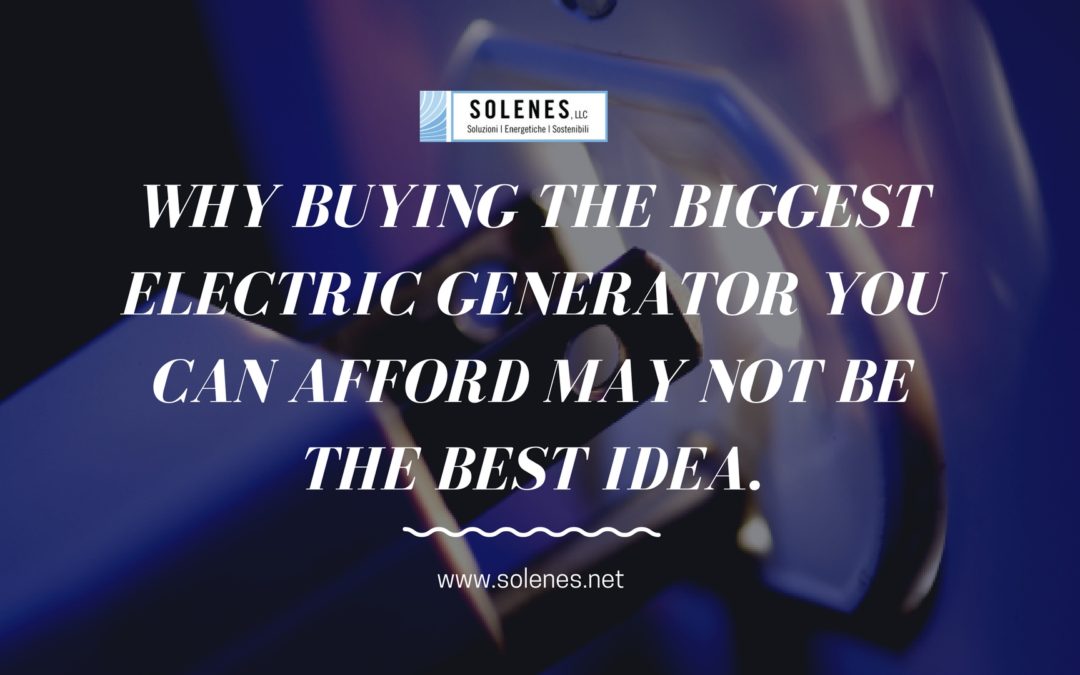On a previous writing, I gave 8 things to consider before you invest on an electric generator. Today, the focus is on the importance of knowing your electrical load.
Most people may tell you, “if you can afford a big unit, buy the biggest one!” This may be true but there are several things you might need to consider:
1. Can you cover all your electrical load?
Typically, organizations buy generators to cover their installed loads plus 20%. For example, if the installed equipment adds to full load capacity of 100 kW, the generator specified and bought is a 120 kW generator or the next available standard generator. Although this will cover your installed needs, typically this peak loads happen for only 5% to 10% of the time. The rest of the time, the electrical load is less. If the actual electrical load profile is know, the generator to be specified and bought could be less and would not crash your budget. Remember, that the electrical generator is the biggest one time cost.
2. For how long can you manage the electrical load?
Fuel shortages may arise after the emergency. For such reasons, you may consider to operate at lower loads or at shorter periods of time in order to manage the stored fuel at your facilities. Nevertheless, the time that your fuel would last is proportional to the stored fuel capacity versus the fuel being consumed. For example: if your generator consumes 24 gallons of fuel per hour and you have a 240 gallon fuel storage tank, the generator would run for near 10 hours. If your refueling system is unreliable or if you need to run longer than 10 hours, you would need a bigger fuel storage capacity or run at lower electrical loads. The recommendation is to at least have the fuel storage capacity to last 7 days without refueling the system.
3. How critical is your electrical load?
If you run a hospital, you need to determine what are your critical loads. A surgical room, or an Intensive Care Unit, right be your critical electrical loads. The ideal case is to have these loads connected to the same electrical feeder in order to feed them with an emergency generator. The utopical world is to have a redundant generator on hand to run these critical loads if the main emergency generator fails.
If you are struggling with your current system or if you are considering acquiring one, Solenes with staff of over 20 years of experience, has the most comprehensive skills operating, maintaining, and assuring that your power generation fits your needs.
Luis Daniel Brignoni, PE, CEA
Save up to 40% on your operational costs
Or call us at 787-405-1747 to let you know exactly how you can lower your energy costs.

